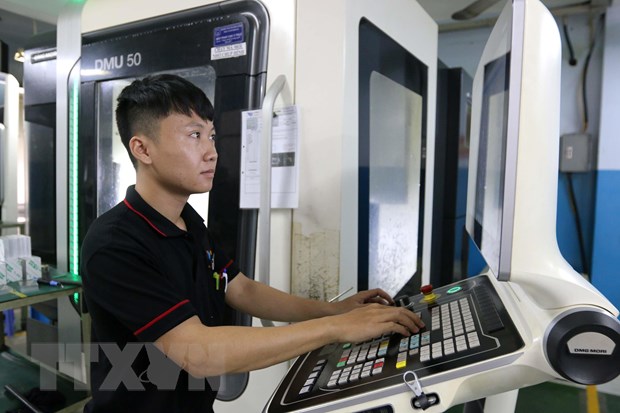 Society
Society


|
| A student at HCM City-based Hùng Vương Technology Vocational Training College. COVID-19 has had significant impacts on logistics vocational education and training. — VNA/VNS Photo Thanh Vũ |
HÀ NỘI — A global economic recession caused by the COVID-19 pandemic might put Việt Nam’s economy at stake due to its strong dependence on partner countries and the international trade environment, according to a recent rapid assessment report issued by the Việt Nam Chamber of Commerce and Industry (VCCI) in collaboration with the Australian Aid and Logistic Vocational Training Advisory Board (LIRC).
Citing data released by the Ministry of Agriculture and Rural Development, the report shows a drop of 2.8 per cent in the total export value of agriculture, forestry and fishery – Việt Nam’s economic mainstays – compared to the same period last year.
The downward trend can be seen in most major export markets of the country’s agricultural, forestry and fishery products, especially China – the largest market share holder at 38.8 per cent – with a decrease of 15.3 per cent. The drop in Vietnamese-made products to the US, which accounts for 23.8 per cent of market share, is even higher, at 15.8 per cent.
Meanwhile, domestic social distancing orders have led to a drop in the demand for essential commodities, triggering unemployment and poverty, according to the report.
“So far, the Government of Việt Nam has been very effective in curbing the pandemic. If the economy is supported by the Government to prevent mass bankruptcy, especially for small and medium enterprises, this is a prerequisite for the country's post-pandemic economic recovery,” it said.
COVID-19 has also had significant impacts on logistics vocational education and training including the decline in training quality following the switch to online teaching and the rising demand of upskilling to help trainees and workers find new job after the pandemic, according to the report.
“This posed the risk of millions of workers losing their jobs but at the same time, inspired many new skills from employees to help businesses adapt to new forms and scales of business,” the report said.
“It is essential to adjust the demand of the labour market as well as update new skills post-pandemic. In this case, vocational training, skills forecast, and COVID-19 impact assessment will play a key role. Workers might have to multi-task and apply technology innovation in doing their jobs,” said Vũ Ninh, head of LIRC. — VNS




